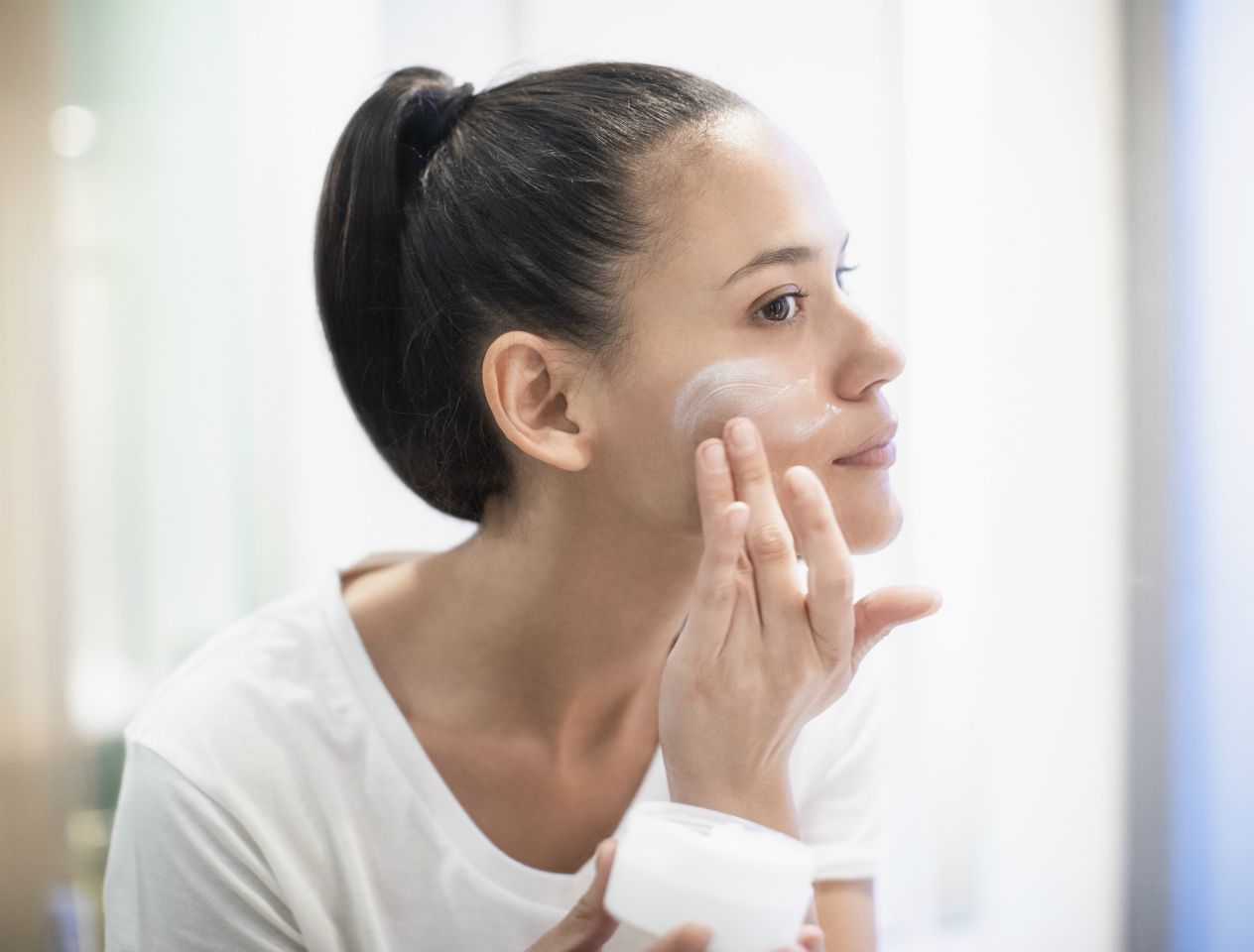Oily skin? Try these expert skincare tips
Why having oily skin is actually a positive thing
There are certain gripes only oily types will be familiar with; the big slide – where your make-up finds itself half an inch down your face approximately three hours after applying it. Then there’s the powder habit where your addiction to compacts and blotting papers prompts frequent and tumultuous upendings of your handbag. And finally the photobomb – that forehead hotspot that obliterates every. Single. Picture.
But while we’ve been conditioned to see oily as ‘bad’ or something that needs to be ‘cured’ according to the experts, it’s actually a good thing for your complexion – you just need to learn how to treat it right. ‘If you have slightly oily skin, for the most part, you tend to age better when it comes to fine lines. When looked after well, oily skins also tend to look more glowing and luminous,’ says skin expert and A-list favourite Debbie Thomas. So far, so good.
“Accepting my oily skin actually resulted in more compliments ”
‘I think there’s a bit of a misconception that perhaps you’re not cleansing well enough, or you’re eating greasy food when in fact, your oil secretions are often determined by your hormonal sensitivities and balance,’ she adds. Debbie explains that as oily skin is for the most part hereditary, it’s also very hard to completely control. ‘For me, accepting my oily skin rather than trying to hide it under layers of mattifying powders actually resulted in more compliments on my glowing skin.’
The upshot? Stop bemoaning your sebaceous glands and let them shine, it’s time to embrace your oily skin and start looking after it the way it deserves (no stripping involved). Here’s how:
Clean and serene
‘Most people who experience excess oil production believe that they are producing more oil than necessary or wanted, but the reality is that they are likely to be dehydrated in their deeper dermal layers,’ says Pam Marshall, clinical aesthetician and co founder of Mortar & Milk. ‘I grew up in a time where you were told to strip your skin of oils in order to treat oily skin, but it couldn't be further from the truth,’ she warns. ‘Using a gentle milky/creamy cleanser and hydrating products will actually reduce the amount of oil we produce.’
Hydration station
‘Hydrating your skin (to reduce oil production) will differ for each person depending on what other skin issues they have,’ says Pam. ‘I always recommend sticking with products that have high levels (higher up on the ingredients list) of PHA’s, such as gluconolactone and lactobionic acid.’ Debbie adds that it’s best to opt for lighter (thinner) formulations rather that thick creams or oils as well as getting clued up on your skincare. ‘Certain ingredients such as retinol can, after several months of use, start to rebalance the skin and reduce oil production. I always recommend regular, but gentle exfoliation with an at home acid product to help reduce the build-up of dead skin,’ she adds.
Spot check
‘Having oily skin doesn't always mean that you're more prone to acne but it does increase your chances of blocked pores and general congestion, which can lead to spots,’ says Debbie. ‘The reason for this is that the oil can be slightly sticky resulting in a build-up of dead skin which causes blockages at the entrance of the pores. Once the pore becomes blocked, the oil builds up which in turn becomes the perfect breeding ground for bacteria.’
Pam adds that there are other factors that will also set skin off. ‘Dermal dehydration and high levels of androgen are the two main triggers for oil production, but you should also be aware of factors such as sleeping in dirty sheets, using essential oils and gut issues.’











